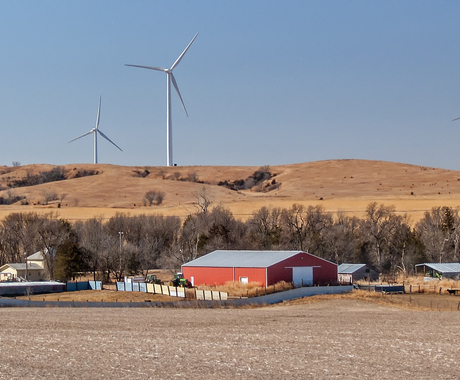By Roz Brown, Public News Service (IA)
For generations, Iowa's topsoil has been called "black gold." And, many farmers are working to keep it that way by renewing their focus on soil health.
Iowa consistently finishes first or second in the country in the production of corn, oats and soybeans. By protecting topsoil and promoting soil health through the use of cover crops, farmers such as Aaron Lehman in Polk County are reaping the benefits.
"Cover cropping adds nutrients to the soil, and certainly from a carbon standpoint that's important,” Lehman said. “So our soil health is improving. We're able to control erosion. We're able to control weeds."
Many states have passed legislation to promote soil health, or are employing other incentives to promote soil health through low-cost loans offered by state agencies; though Iowa is not one of them at this time.
Katie Rock, policy associate at the Center for Rural Affairs, noted farmers operate on a tight margin; and paying attention to soil health is becoming increasingly important. She said cover-cropping is the common thread to protect the state's food and water supply - and makes communities more resilient through drought and floods.
"Farm groups and scientists have been working together for years to promote the health of the soil,” Rock said. “And now we're seeing that policymakers are tuning in as well to the discussion. And they're looking at ways to protect our arable land. It's incredibly important."
Lehman said he would like to see the state offer farmers more incentives for cover-cropping. He believes it would not only boost farm productivity, but also address water quality and, ultimately, climate change.
"What we've seen is that our productivity on those grounds that we've used these practices is improving,” he said. “And we see it not only when we compare it to other fields, but also when we do soil tests. We see the measures of soil health going up."
In 2010, more than 60 percent of Iowans voted for a constitutional amendment creating the Natural Resources and Outdoor Recreation Trust Fund. Voters designated the revenue source as a three-eighths cent increase in sales tax - which has, as yet, not been approved by the Iowa Legislature.
A boost in sales tax would raise upwards of $180 million for watershed planning, local watershed groups, cost-share practices, lake restoration and outdoor recreation investments in rural communities.





